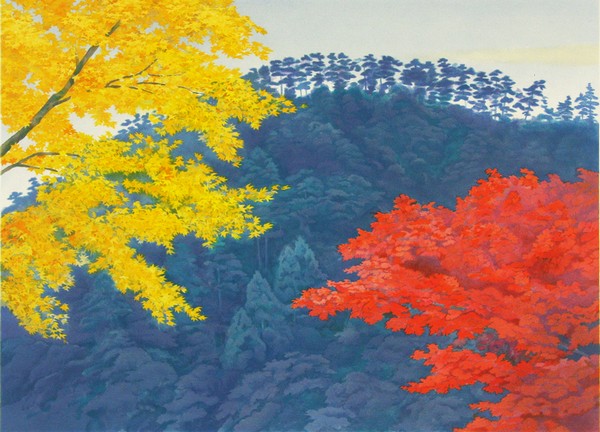
My dearest, I am on holiday these days, so I am sending you a musical postcard, linked not to a place but to a voice, that of tenor Fritz Wunderlich. Yesterday marked fifty-eight years since his death at thirty-five, and next week will mark ninety-four of his birth. As every year, we dedicate a post on Liederabend to recall him and thank him for the music.
These days the air is cooler (in the place where I am, more than in Barcelona) and you want to go for a walk early, at a light pace, but putting your senses in the things that surround us. And this is what Eduard Mörike and Hugo Wolf do in their poem and song, Fußreise. For once, the poetic voice is not that of a wanderer, but that of a poet and composer who start their day by walking (it seems that they both used to do it regularly).
Mörike's poem has a very irregular or, if you prefer, free structure, with three stanzas of fourteen, six and four verses, respectively. And Wolf, the great Wolf, who didn't usually write strophic songs, this time composed a Lied that is very close: the song has a simple melody and a rhythmic motif of the piano that runs throughout, changing but always recognizable. Because a song for walking needs to be strophic and have a marked rhythm, don't you think?
The first four verses of the poem define the musical stanza; the next five present a varied stanza, as the last five of the first stanza of the poem. In the second stanza, a religious reflection (thanks, Mörike, for your humanity and not to mention Eva!), the music also changes, to return to the initial melody at the last stanza, four verses that are a philosophy of life.
Fritz Wunderlich’s voice, accompanied here by Rolf Reinhardt in a recording from, conveys the lightness, joy of living and light of this beautiful song.
Next week you'll get a musical postcard with a picture of the place I'm in. In the meantime, I will continue to take advantage of the fresh autumn air for long walks.
Am frischgeschnittnen Wanderstab,
Wenn ich in der Frühe
So durch Wälder ziehe,
Hügel auf und ab:
Dann, wie’s Vöglein im Laube
Singet und sich rührt,
Oder wie die goldne Traube
Wonnegeister spürt
In der ersten Morgensonne:
So fühlt auch mein alter, lieber
Adam Herbst- und Frühlingsfieber,
Gottbeherzte,
Nie verscherzte
Erstlings-Paradiseswonne.
Also bist du nicht so schlimm, o alter
Adam, wie die strengen Lehrer sagen;
Liebst und lobst du immer doch,
Singst und preisest immer noch,
Wie an ewig neuen Schöpfungstagen,
Deinen lieben Schöpfer und Erhalter.
Möcht es dieser geben
Und mein ganzes Leben
Wär im leichten Wanderschweisse
Eine solche Morgenreise!

















Comments powered by CComment